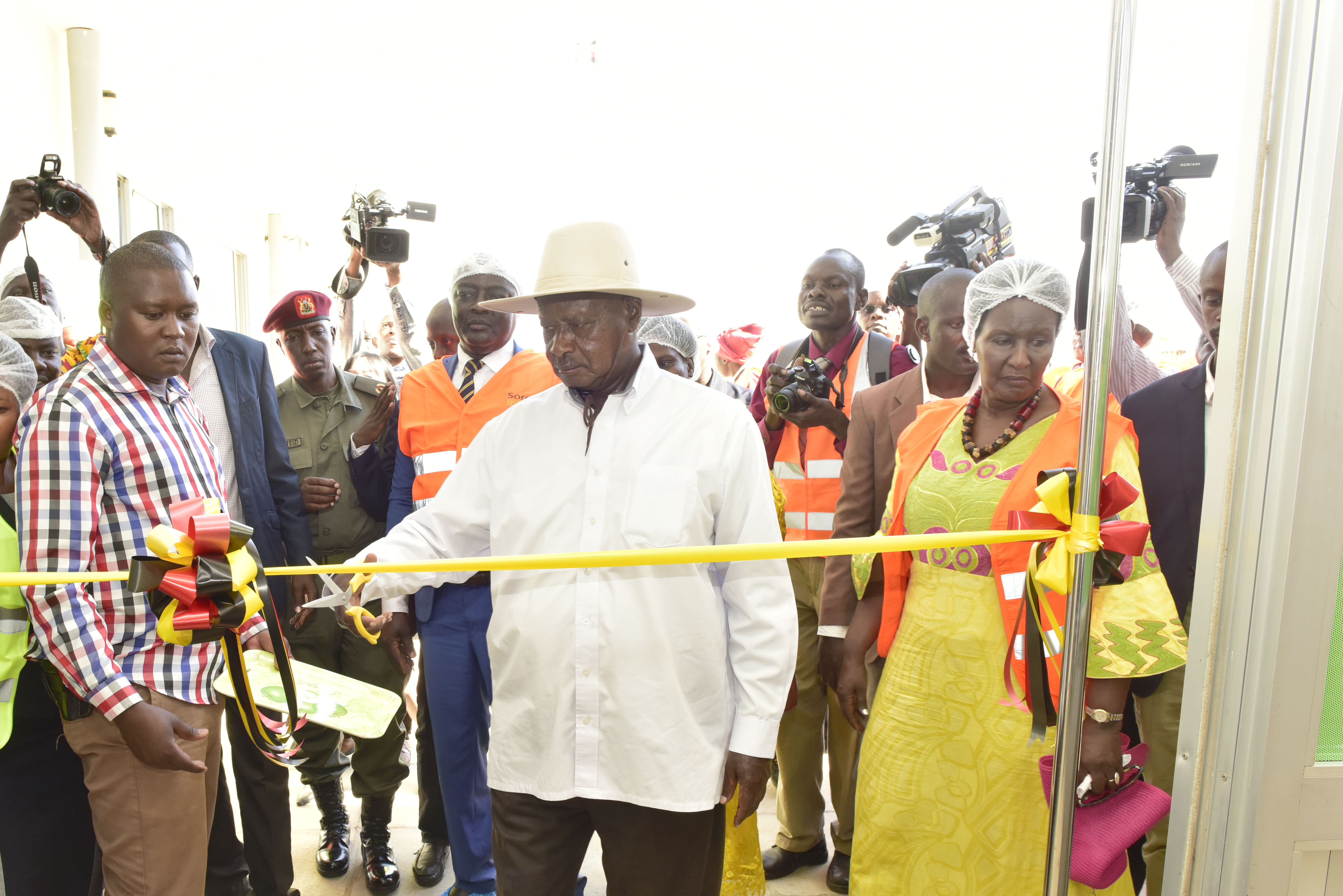SOROTI, UGANDA: Teso Tropical Fruit Growers Cooperative Union (TETFGCU) have the capacity to produce the fruits needed to run the just commissioned Soroti Fruit Factory, if the existing challenges are addressed, their Secretary General has said.
In an exclusive interview with theCooperator following the launch of the Teso Fruit Factory on Saturday, Mr. Emoit Lawrence, the cooperative’s Secretary General said that with over 25, 000 farmers from across all the nine districts of Teso region, TETFGCU was capable of producing the 120,000tones required to feed the factory annually.
“With all these farmers we certainly can generate the needed tons that the factory needs. But that is if perennial challenges such as long dry spells, pests, transport and pricing are sustainably addressed,” he said.
In December last year, government through the Ministry of Agriculture, Animal Industry and Fisheries (MAAIF) purchased 240 motorized pumps for Teso Sub-region, to spray and contain the crop fly that was menacing Orange farmers in the sub-region.
“We got the pumps that we distributed to all our farmers in the region registered under our Cooperative Union. Each of the member clusters got four pumps,” said Emoit.
Although the pests’ menace was eventually temporarily tamed, farmers continue to grapple with transportation of farm produce, and access to markets.
Pricing and transport challenges
At Arapai Sub-County in Soroti District, Emoit says that the Teso Fruit Factory is located far away from the production farms, and that farmers will find it difficult to transport their produce to supply it.
By shares, TETFGCU owns 20% of the factory, with Government through Uganda Development Corporation owning the remaining 80%. According to the Memorandum of understanding signed between TETFGCU, the Government of Uganda and the Korean International Cooperation Agency, the cooperative is supposed to deliver the fruits necessary for the full running of the factory. It has so far supplied 50 tons of fruit, theCooperator has learnt.
But Emoit insists, they (farmers) still have issues with price. “We are paid just shs.600 per kilogram upon delivery. Yet Transport costs are so high, because we have to hire trucks,” he said.
He said as a union, they purchase oranges from farmers at between shs400- 500 per kilogram and end up earning only shs100 as profit from the factory. “This is what will demoralize the cooperative, and by extension the farmers,” he said.
When contacted, Agriculture, Animal Industry and Fisheries Minister Vincent Sempijja however insisted, any issues with farmers will be addressed, and that government is determined to support the sub-region to meet the factory’s demand, and reap from the investment. He revealed that out of the 39 million citrus trees in the country, Teso now has three quarters, and thus in position to meet the factory’s total fruits’ demand.
Despite the claimed local capacity however, the factory management has since the testing of the plant been purchasing most fruits from neighbouring Kenya and Tanzania to make up for the shortfall in local demand supply, theCooperator has learnt.
The shs48b fruit processing factory was officially commissioned by President Museveni on Saturday, 13th April 2019.
